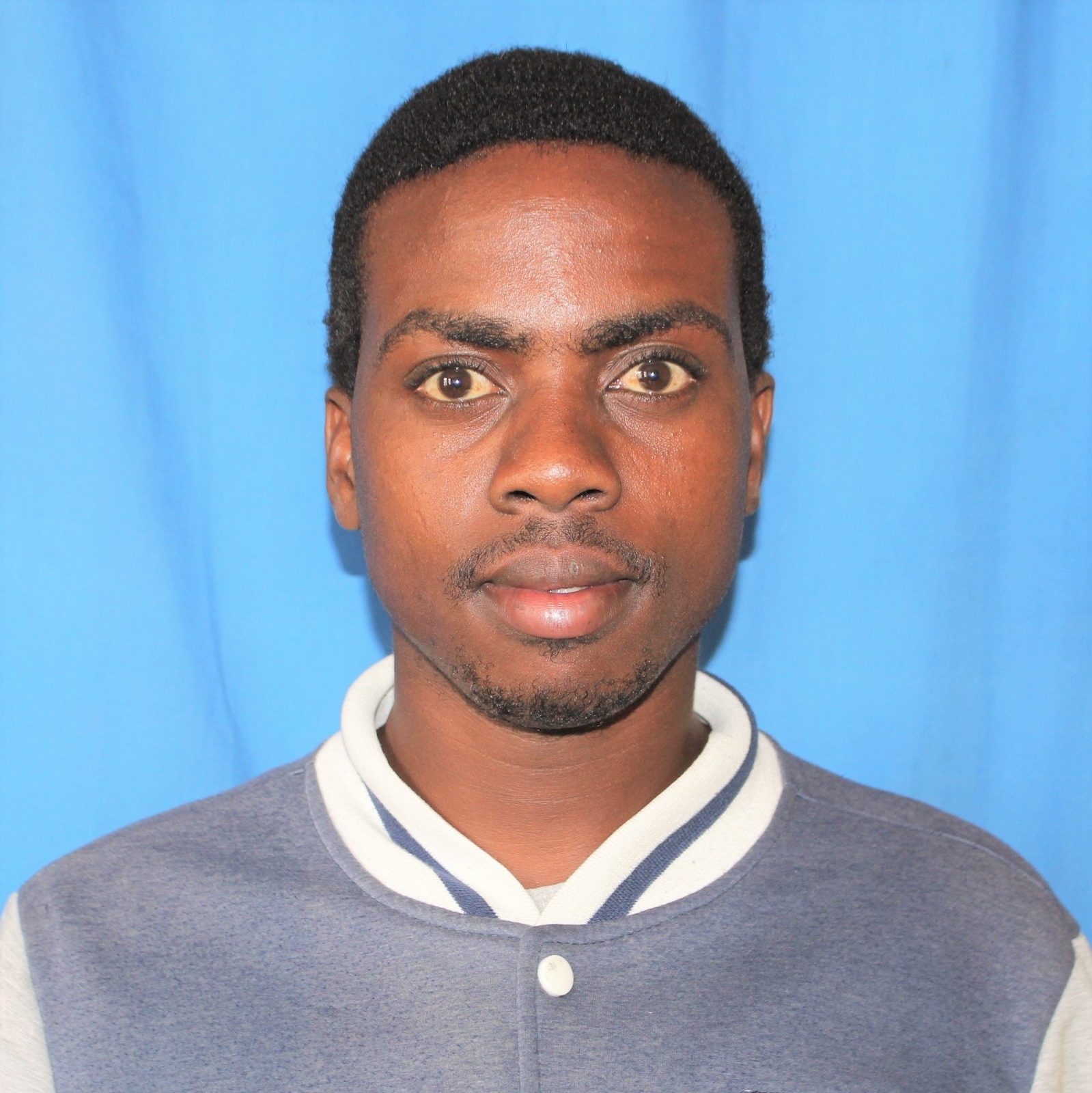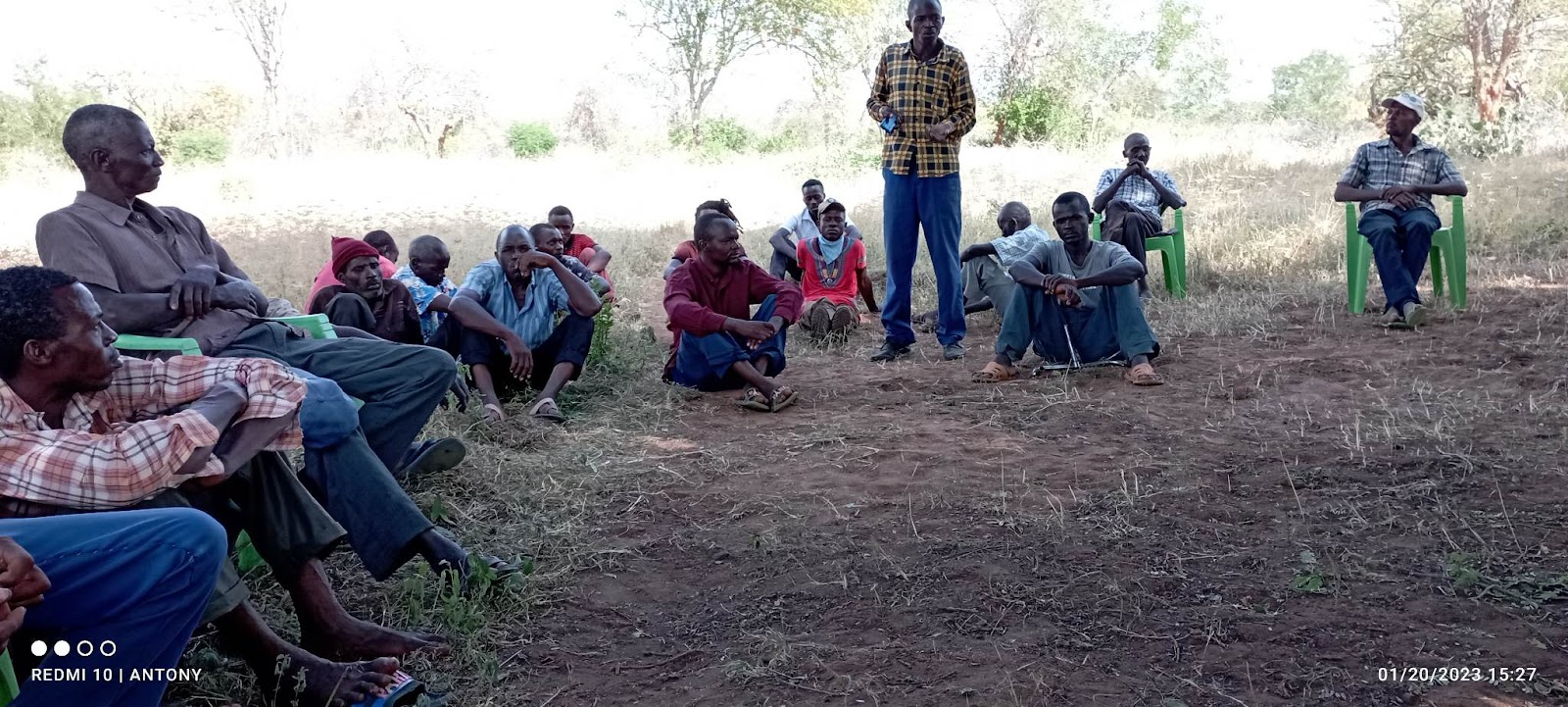SUPPORTING EDUCATION TO LOWER POACHING ACTIVITIES IN TSAVO EAST NATIONAL PARK
One of the key youth
activists from Kitui county has called for relevant authorities and well
wishers to support the education of the people from this marginalized region.
In s statement He shared with us today the social justice activist is calling
for the support of the community to educate their children as one of ways
of eradicating poverty and also way to curb the illegal poaching in the Tsavo
East National park . The community which borders the park undertakes the
poaching as a way to earn a living.
the statements
reads :
"My Name is Antony Mutua. Born in Kitui
county, Kenya.I have been raised and brought up in a poaching family and
community, something I didn't like from my childhood. But my father and village
mate have been doing it as an alternative source of livelihood since our area
is an arid place. So we went through a very painful and tough livelihood as
kids, going to school in our community has been a problem due to poverty. I
have been thinking that.
Getting an education is the only solution to limit poaching activities in Tsavo east national park. Personally, I was lucky to attend school and am glad that I advised my father to stop poaching and has since stopped, but my worry is about my neighbors who haven't been able to attend school. We have very bright kids but due to poverty, they end up dropping out of school. We have had several meetings as a community to resolute how we can get ourselves out of poverty level, how we can get another source of livelihood apart from the poaching, and our thinking came as we get to school as many kids as possible, start a technical college which will equip our children with skills to earn them an income.
community members during a past eventWe are
hereby requesting the well-wishers around the world help us actualize our
dream. Many of us know that Wildlife hunting is considered the second most
common cause of recent animal extinctions after habitat destruction (Reid 1992;
Brashares et al. 2004; Maisels et al. 2001; Milner-Gulland et al. 2002; Murray
2003; Symes et al. 2018). human poverty is a major driver of wildlife poaching
and biodiversity loss (TRAFFIC 2000; DFID 2002; Hübschle and Shearing 2019;
Wilson-Holt and Roe 2021).
Poverty among inhabitants living adjacent to
wildlife is higher because they bear the highest cost of biodiversity
conservation through crop destruction, and livestock predation (DFID 2002;
Wilson-Holt and Roe 2021). Poor people (living on one dollar per/day), poach
bushmeat and animal trophies (TRAFFIC 2000; DFID 2002; Campbell et al. 2001),
to support their family's basic needs such as food(bushmeat) and secure income
(by sale of hunting products) to buy clothing and pay for their children
education (DFID 2002). Wildlife poaching is a high-risk undertaking for
hunters. They are confronted by well-funded anti-poaching campaigns including
recruited well-trained rangers, aircraft and vehicle patrols, precision
spotting, and communication system to nab poachers (Bruner et al 2001).
In
southern Africa, none of these responses has achieved tangible results in
lowering unnatural rhino deaths through illegal hunting (Hübschle and Shearing
2019). Once apprehended the poachers are tortured in the bush to extract
evidence about their crime, injured in the chase to arrest them, and eventually
many are taken to courts and convicted of crimes and sentenced. The arrests and
imprisonments of poachers are reported by GOK administrators and supporting
NGOS as successful stories in the fight against poaching in and around
protected areas. The arresting and jailing of poachers who are poor themselves
has potential consequences of creating a new breed of poachers from affected
poor families. How does this happen; the poachers are mainly illiterate, lack
basic education, or skills which can enable them to seek formal or informal
employment or self-employ themselves. Once arrested and jailed, the men who are
breadwinners of their families, lose income to buy food and pay for education
for their children (DFID 2002).
Their children are sent away from school for lack of school fees (Akoojee and McGrath, 2016; Onyango and Muteshi (2016). If their parents (fathers) are jailed for more than one year, that marks the end of their education. The uneducated daughters of the illiterate poachers grow up and get married to other unschooled men, whose main livelihood activity may be wildlife hunting if they live near a protected area. The sons of the jailed poachers become breadwinners of their families, by either being poachers themselves in the protected area or being employed as causal laborers because they have no academic or technical skills to be employed or employ themselves (Mueni and Macho 2016; UNESCO, 2020). Some arrested poachers are killed, tortured, and injured and are rendered incapacitated (Hübschle and Shearing 2019), to even work for themselves leave alone to support their families. Thus, they turn from breadwinners to a family burden; requiring medical care and provision of food. Therefore, the arrest and jailing of poachers not only destabilizes the families but creates a fertile ground for recruitment of new crop of poachers. The question is what should be done to break the prevailing vicious cycle of wildlife poaching in and around the protected areas. Many funding organizations support anti-poaching campaigns such as removal of snares, recruitment and training of game rangers/scouts, purchase of equipment to enhance patrols and communication (Bruner et al 2001; Hübschle and Shearing 2019; David Shieldrick








Comments
Post a Comment